We invent many things at our orphanage in Haiti, mostly because we have to. Haiti is a place where the given is not a given, where paperwork disappears, where essential records are lost.
So at times we have to have birth certificates created, for children who come to us with no history. We have to decide birthdays. We have to invent addresses and build medical histories.
We also invent siblings. But that requires no formal action. The kids do it on their own.
I was lucky enough to grow up with a sister and a brother. I was also in the middle, so I knew what it was like to be “younger than” and “older than.”
Our kids come often come from families with many children, so they have brothers and sisters somewhere. But they don’t know them and rarely meet them. They don’t know the younger-than or older-than thing, or the pecking order around a dinner table or when loading into a car.
On the other hand, as we always tell them at nightly devotion “Look around. These are your brothers and sisters. And they always will be.”
You’d be amazed how they take that to heart.
Little sister
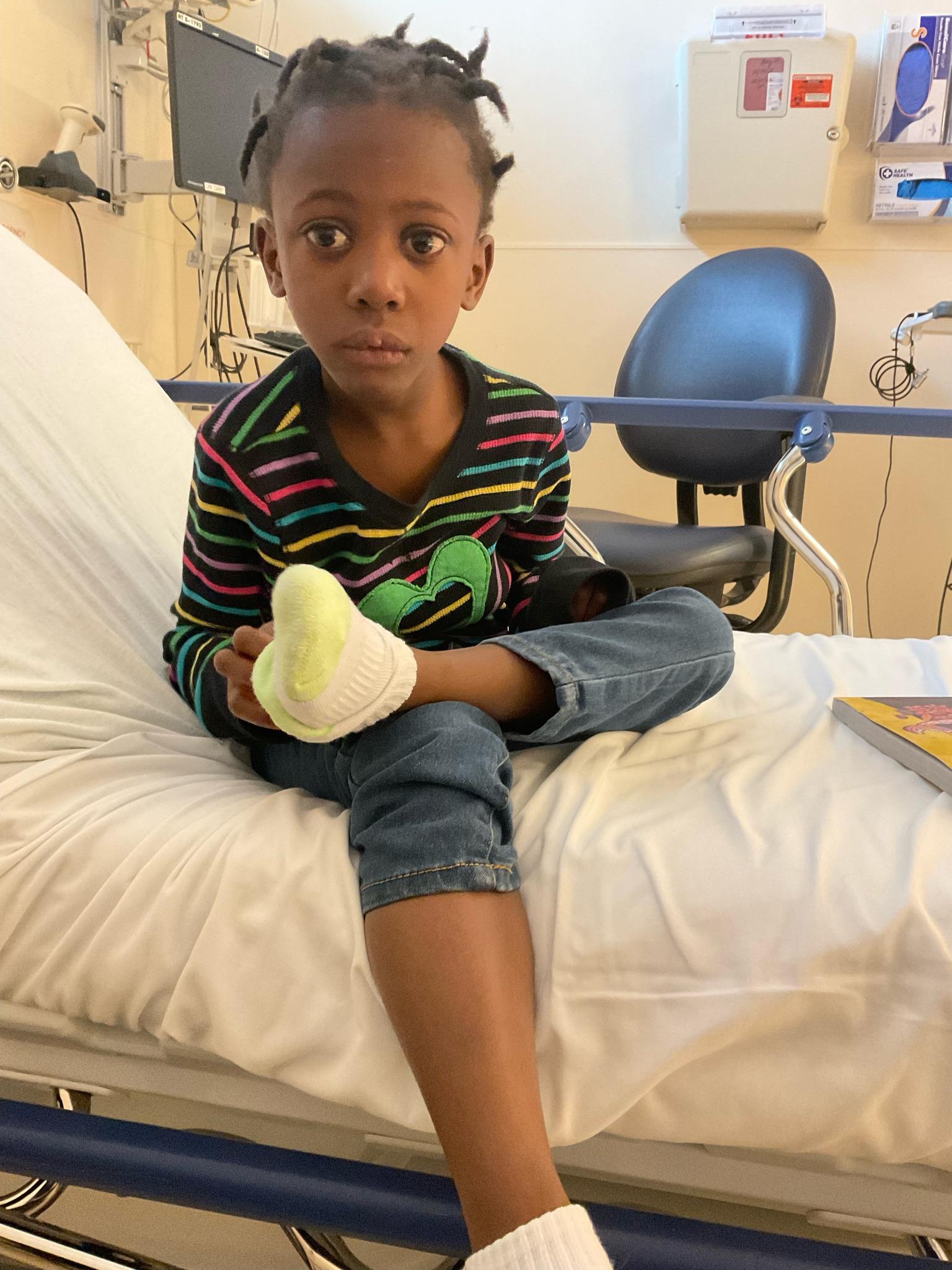
Brave little Fedyana waiting for her MRI, and not loving the socks they gave her to wear. |
I wrote last week about little 5-year-old Fedyana, who came to the orphanage last summer from Miragoâne in the provinces. From her arrival she limped, and displayed a weakness on her left side. She was also prone to bedwetting and fits of indiscriminate crying and howling. A Haitian CT scan concluded hydrocephalus (fluid on the brain) and a possible tumor. We brought her to the U.S. last week to meet with a brain surgeon and get an MRI.
I am happy to report that the Haitian scan was not accurate. Fedyana does not have hydrocephalus, nor a tumor. We have to thank God for that. She does have some congenital brain damage from something that likely happened during her mother’s pregnancy. It has left certain parts of her brain undeveloped, and the results are a form a cerebral palsy that affect her movement on the left side.
She’ll need therapy and a sharp eye to watch out for seizures. But the news could have been a lot worse, and, outside of waking up from anesthesia and not being able to speak to the doctors in English, she came through her hospital day pretty darn well.
That’s largely because her “big brother” Knox was at the hospital with her. Knox held her hand. He shared his toys. He gave her a choice of popsicles when she woke up from the procedure.
Knox and Fedyana are not related. At the orphanage, they don’t spend much time together. But “these are your brothers and sisters” resonates deeply with our children, and Knox slipped into big brother mode as if he’d grown up his whole life with Fedyana in the next bed.
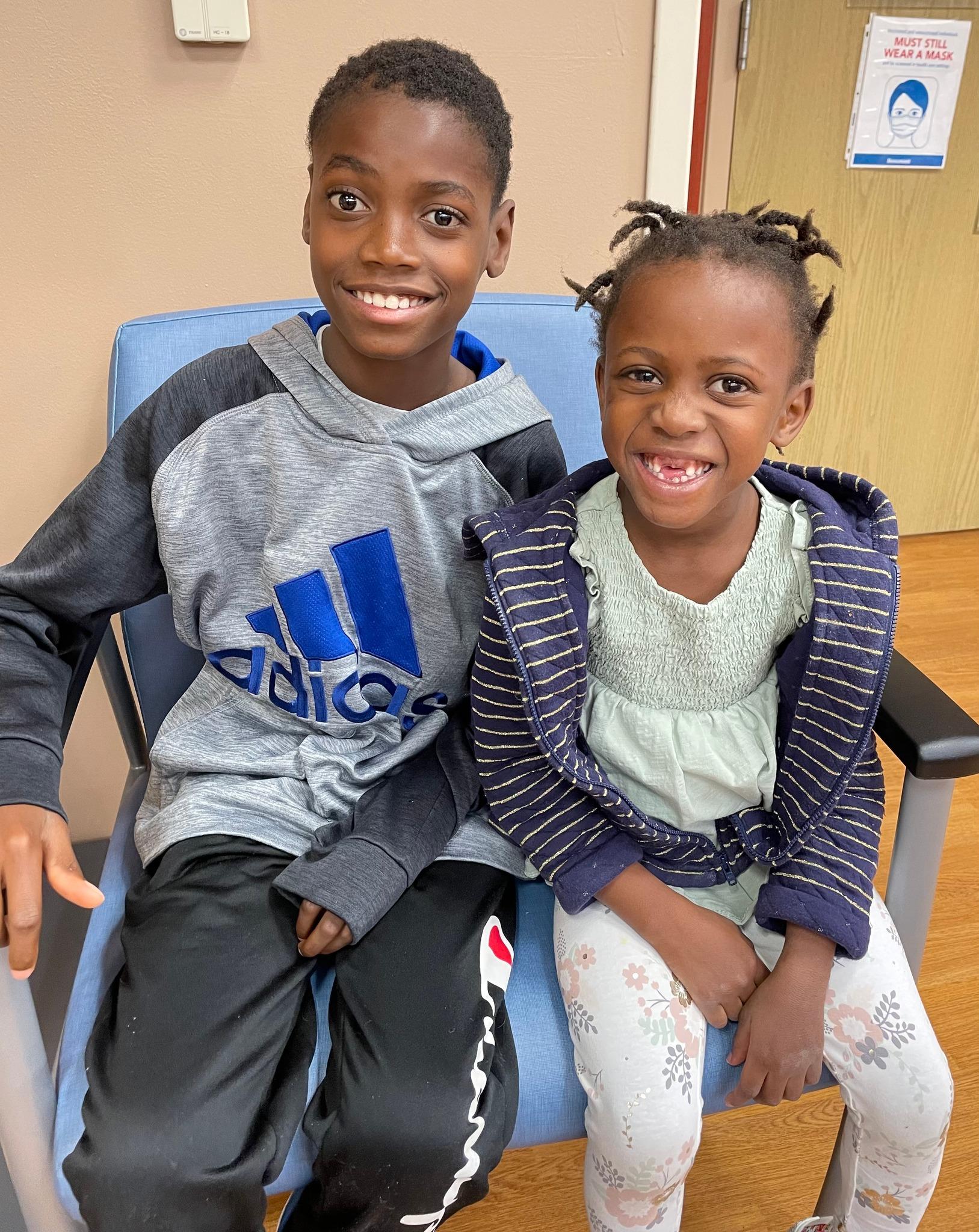
Knox and Fedyana together at therapy |
Families are like pieces of art, they can be made from many materials. Sometimes they are from birth, sometimes they are melded, sometimes they are merely time and circumstance mixing together.
Big brothers and sisters
This happens all the time. Our older kids carry our younger kids. They let them fall asleep in their laps. They share their food with them, take them to the bathrooms, scold them if they are acting up.
It’s a beautiful thing to witness, the bonds of brotherhood and sisterhood so willingly embraced. I see it when our teenaged girls make meals together, or when our teenaged boys play in their band. I see it when our little ones walk arm in arm. I see it in my own home when Knox reminds little Fedyana “You have to pray first” before she eats her cereal.
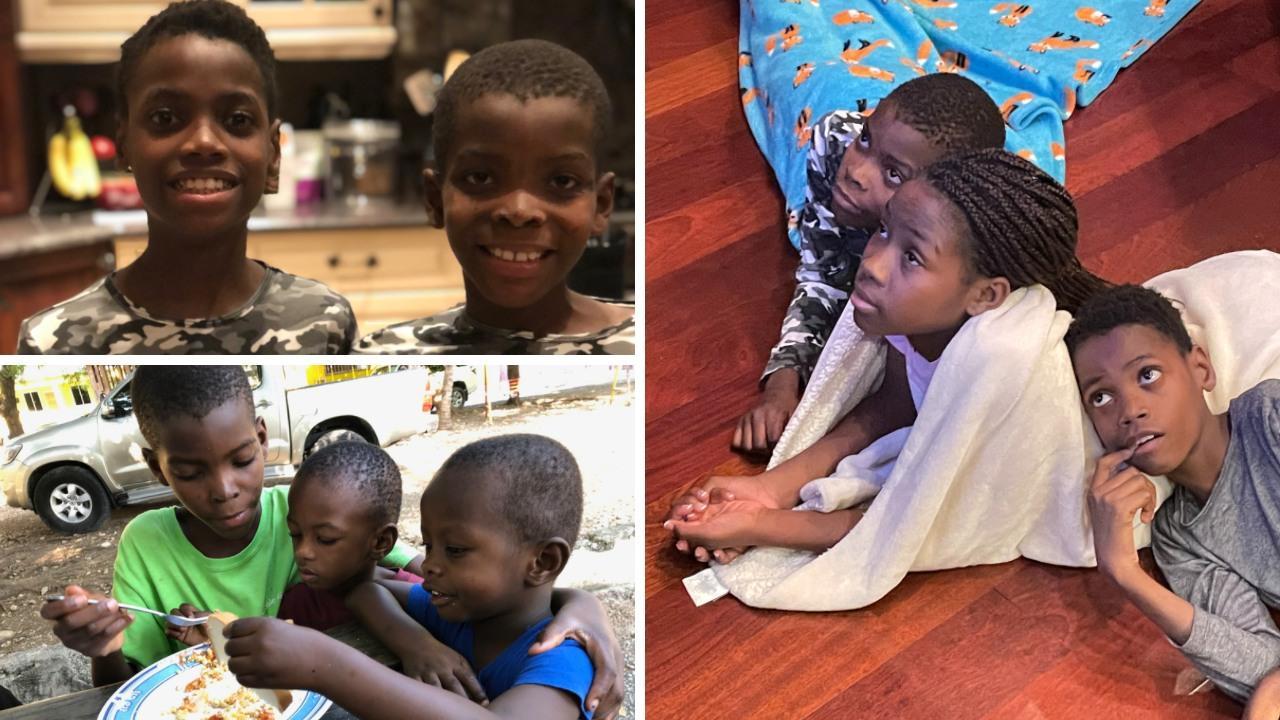
Clockwise from top: Knox and Gaelson; Knox, Gaelson and Babu watching a movie in America; Gaelson sharing his food with little brothers Jeff and Archange |
And I realize it when I speak to Edney, one of our kids in college, and I ask him about making friends in the U.S. versus how he had to make friends at the orphanage. “That’s different,” he says. “Those are my brothers.”
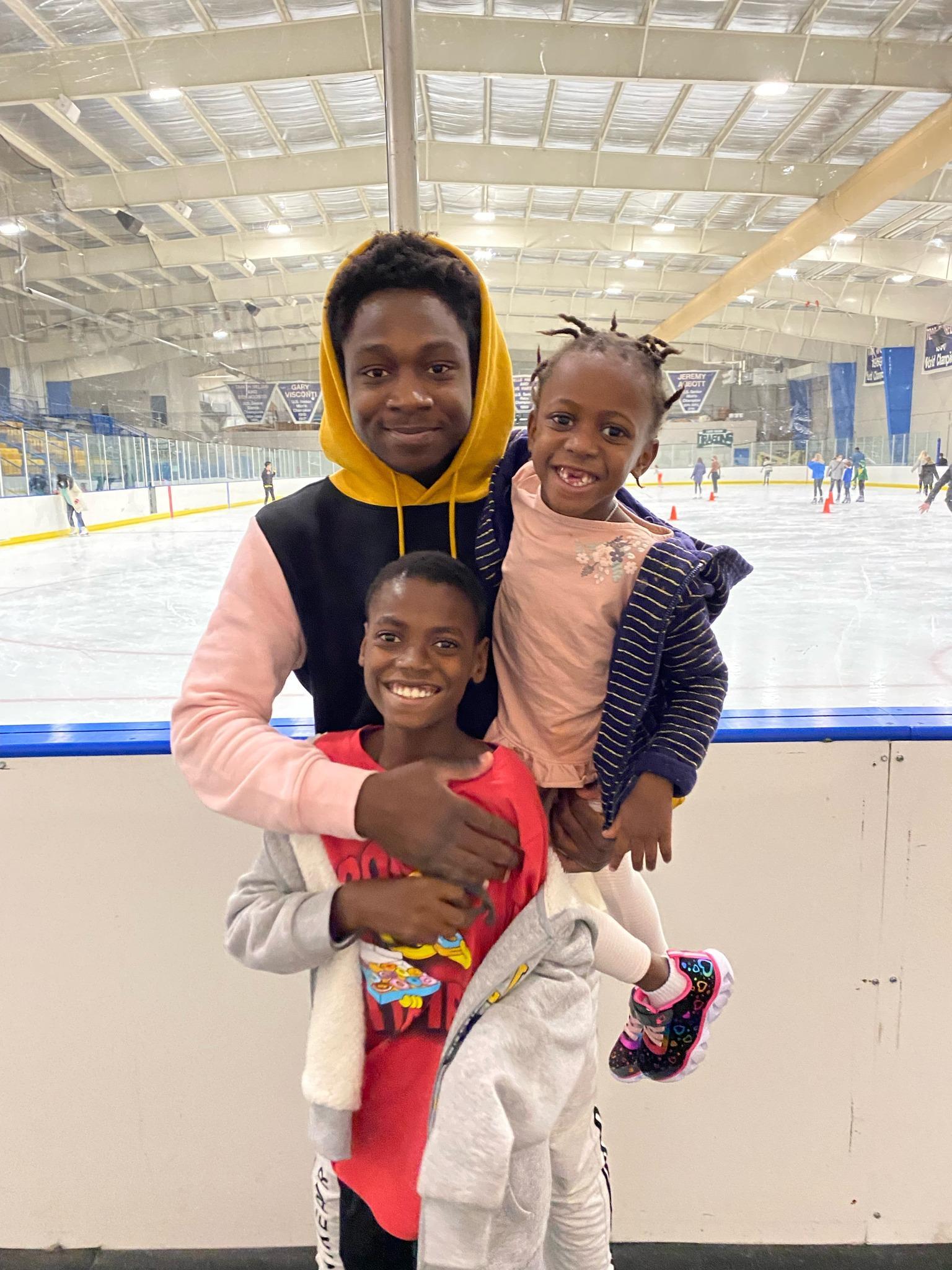
Edney visits with Knox and Fedyana over Easter weekend. |
In the book “Finding Chika,” I wrote “Families are like pieces of art, they can be made from many materials. Sometimes they are from birth, sometimes they are melded, sometimes they are merely time and circumstance mixing together.”
The time and circumstance that bring 55 kids under one roof at an orphanage, or a pair together in a hospital waiting room, are part of that artwork.
They don’t have the same last name. They don’t look like one another. But like so many of our precious children, “Big Brother” Knox and “Little Sister” Fediana were every bit a family this week. We didn’t have to invent a thing.
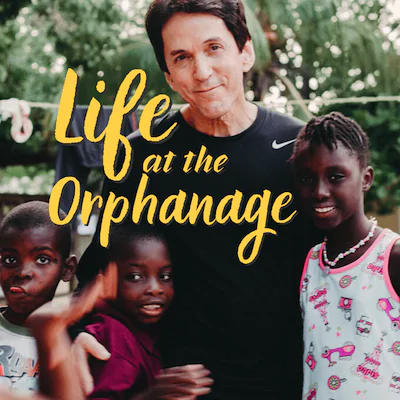
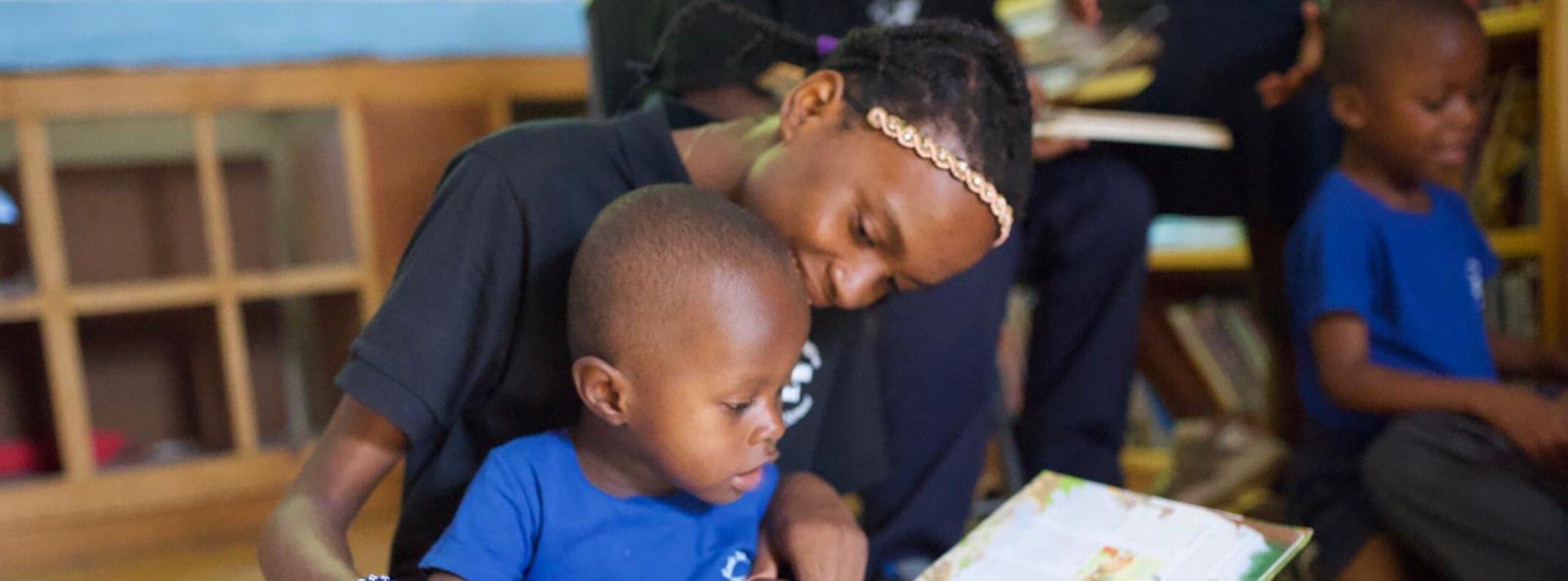

 Join a community of monthly donors
Join a community of monthly donors
0 Comments